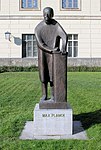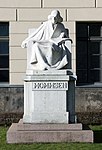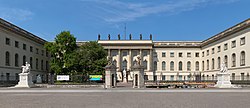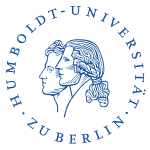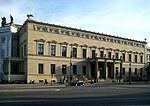Alexander von Humboldt Memorial, Berlin
1883 establishments in Germany1883 sculpturesAlexander von HumboldtGermany sculpture stubsHumboldt University of Berlin ... and 6 more
Monuments and memorials in BerlinOutdoor sculptures in BerlinSculptures of men in GermanyStatues in BerlinStatues in GermanyWorks by German people
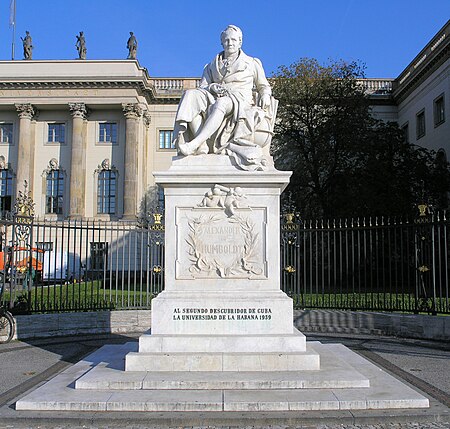
The Alexander von Humboldt Memorial to the right of the Humboldt University main building on Unter den Linden avenue in Berlin's Mitte district commemorates the Prussian polymath and natural scientist Alexander von Humboldt (1769–1859). Created in 1882 by Reinhold Begas in neo-baroque style, the marble statue is a masterpiece of the Berlin school of sculpture.
Excerpt from the Wikipedia article Alexander von Humboldt Memorial, Berlin (License: CC BY-SA 3.0, Authors, Images).Alexander von Humboldt Memorial, Berlin
Georgenstraße, Berlin Mitte
Geographical coordinates (GPS) Address Phone number Website Nearby Places Show on map
Geographical coordinates (GPS)
| Latitude | Longitude |
|---|---|
| N 52.5176 ° | E 13.394 ° |
Address
Humboldt-Universität zu Berlin - Campus Mitte
Georgenstraße
10117 Berlin, Mitte
Germany
Open on Google Maps

